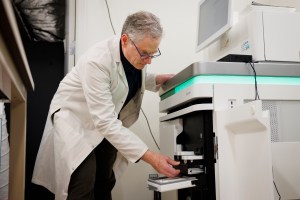Science & Tech
-

How AI deepfakes have skirted revenge porn laws
Limits unclear when explicit images of individuals look real, but are digitally generated
-
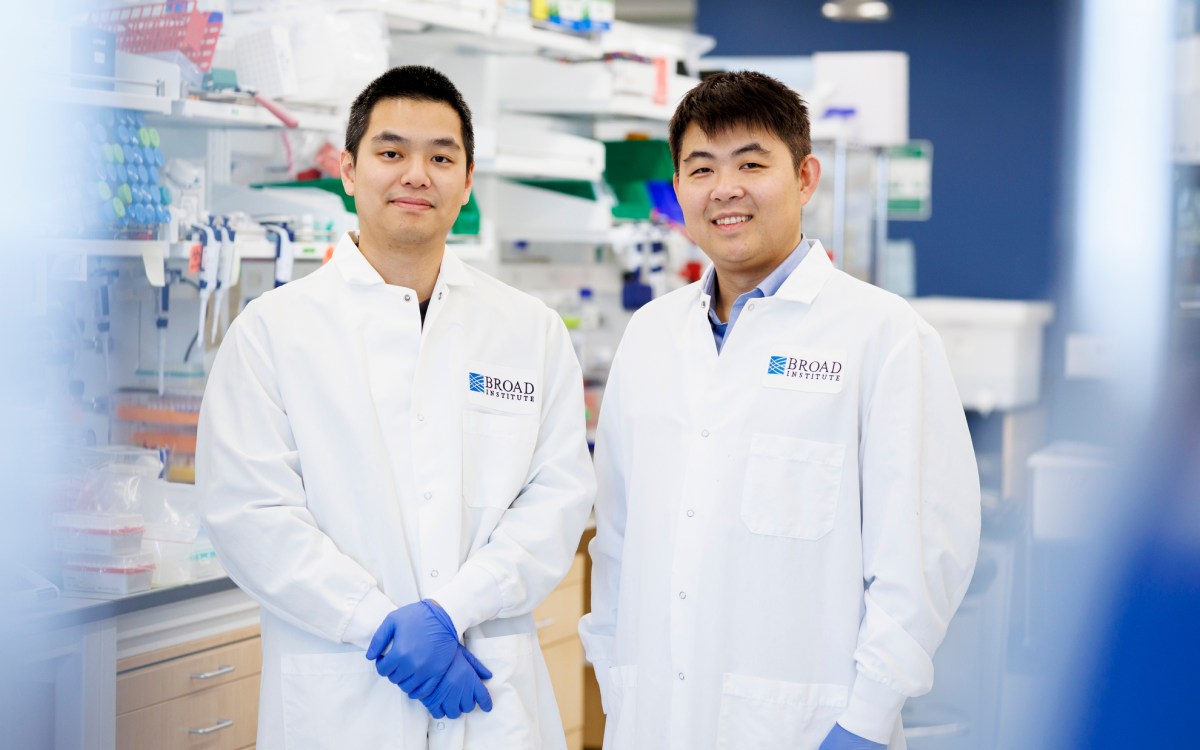
How did that cancer cell become drug-resistant?
Researchers find way to create microscopic archives of gene activity to gain insights into how, why changes happen

-
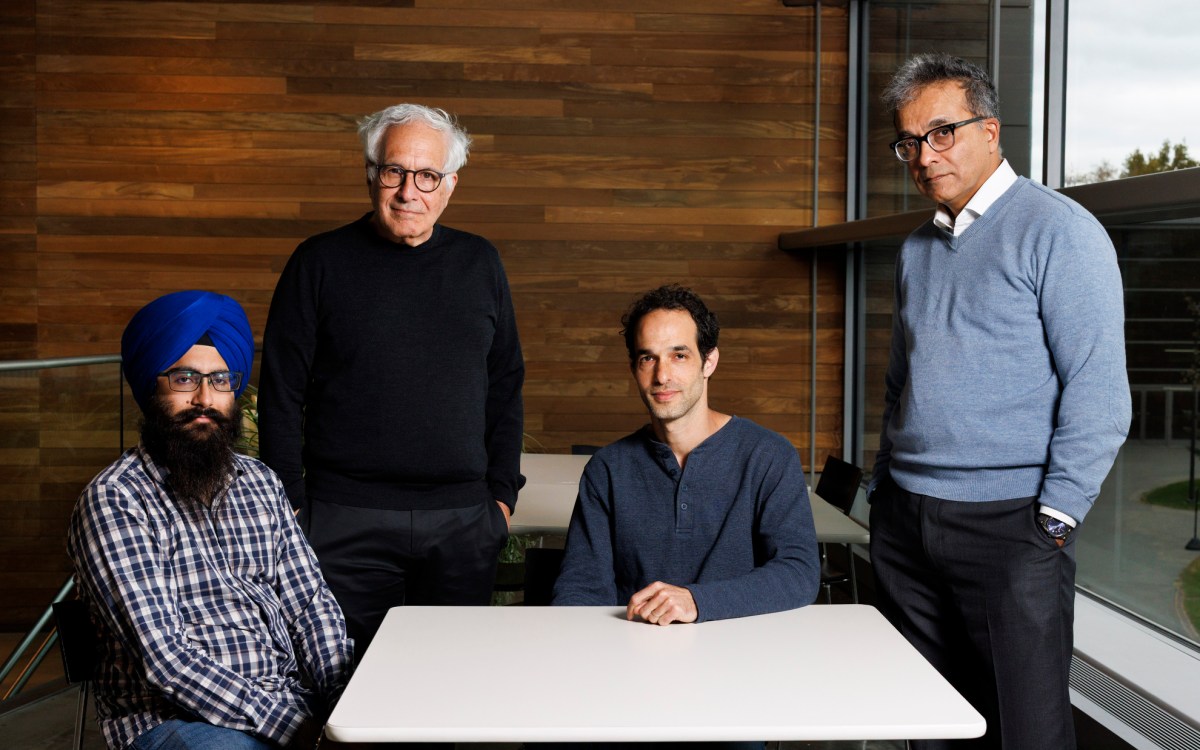
Want to speed brain research? It’s all in how you look at it.
New AI-enhanced scanning method promises to boost quest for high-resolution mapping
-
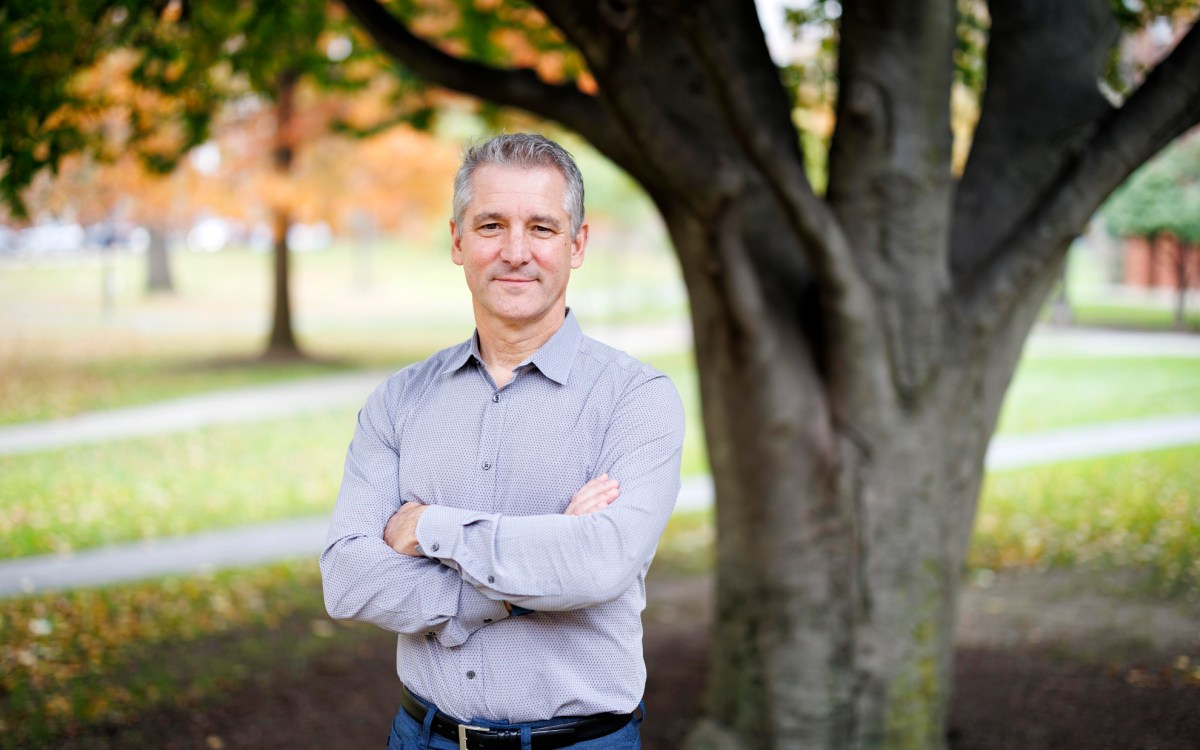
-
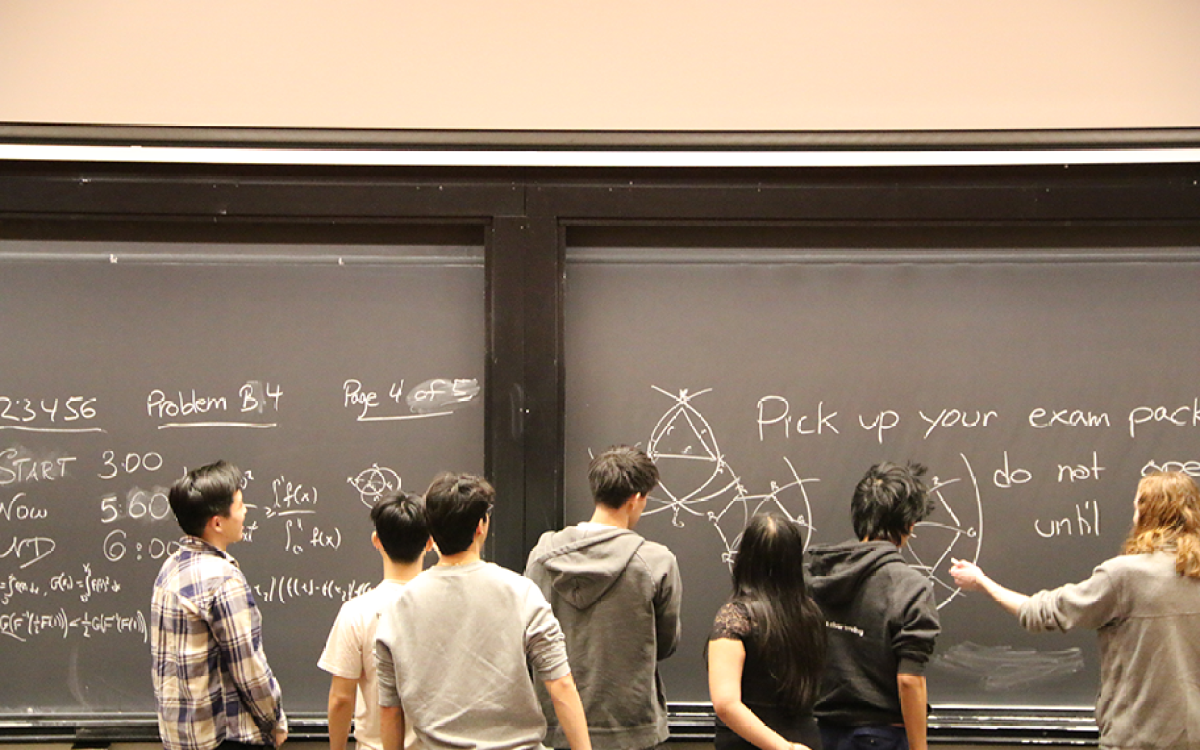
‘It just feels good when you solve the hard problems’
Why do students volunteer to take this notoriously difficult math exam? For the fun of it.
-
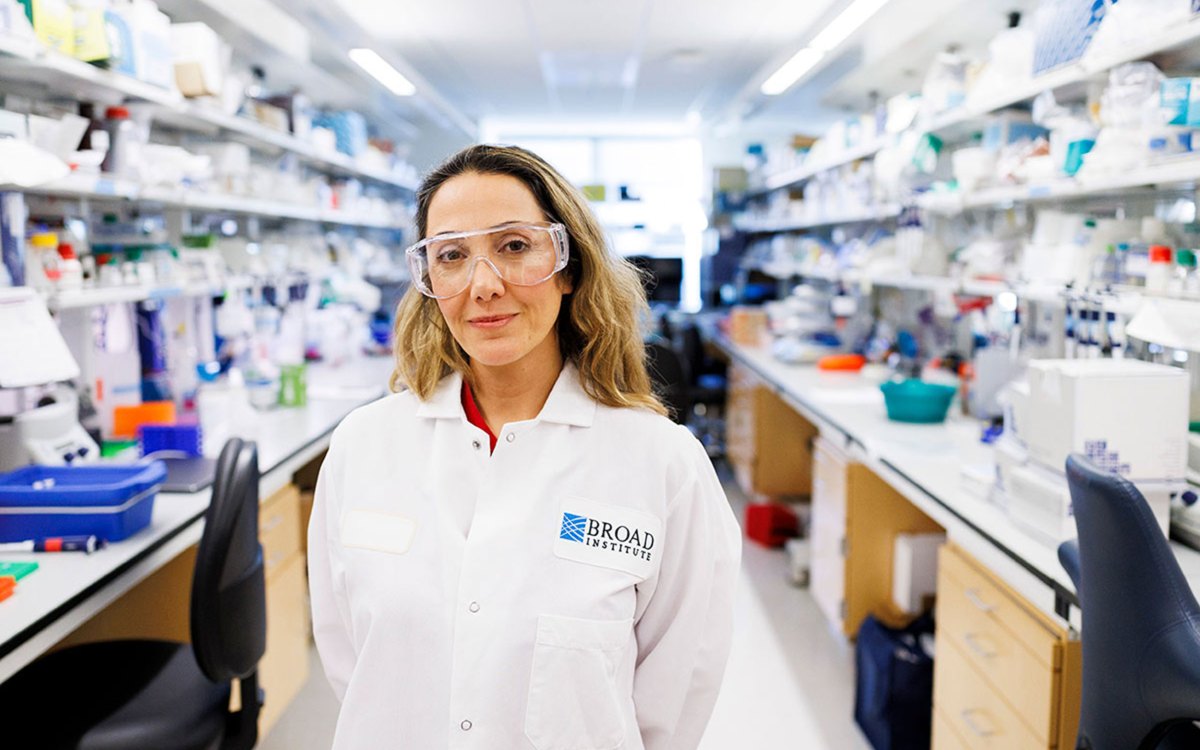
Stopping the next pandemic
Disease surveillance network faced ‘existential cliff’ despite proven success. Then came the $100 million.
-
The look of music
A new study by Chia-Jung Tsay, a musician and Harvard Ph.D., examines the power of visual information in evaluating classical music.
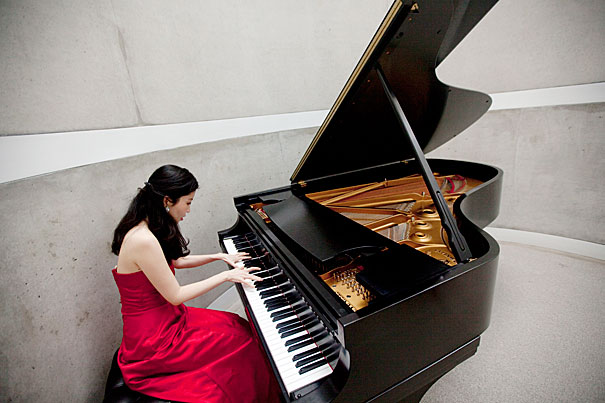
-
Seeds of violence in climate change
Nathan Black, the French Environmental Fellow, is studying how nations fall into civil war during the type of agricultural disruption possible with a changing climate — and what some nations might do to prevent it.
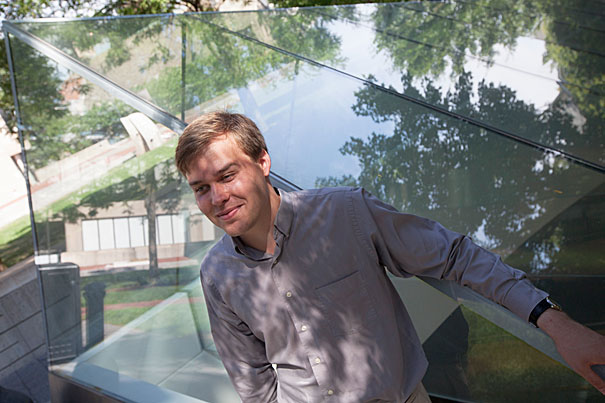
-
Water crisis, made clear
Thirty-one schoolteachers spent four days on campus last week at a workshop put together by Harvard’s regional centers and programs to provide background on the growing global water crisis.
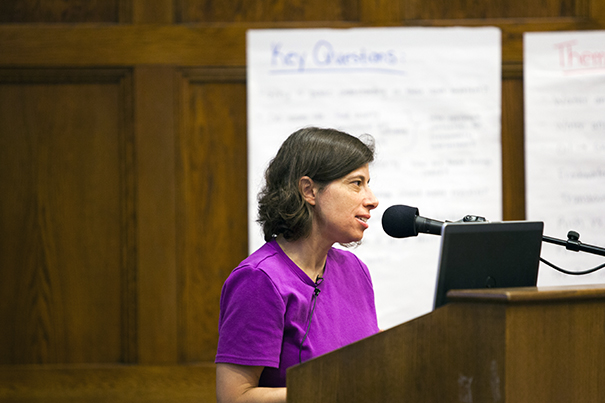
-
Seeing depth through a single lens
Researchers at the Harvard School of Engineering and Applied Sciences have developed a way for photographers and microscopists to create a 3-D image through a single lens, without moving the camera.
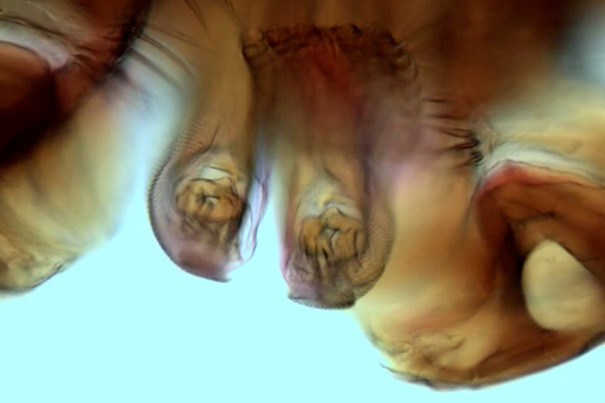
-
New coating creates ‘superglass’
A new transparent, bioinspired coating makes ordinary glass tough, self-cleaning, and incredibly slippery. It could be used to create durable, scratch-resistant lenses for eyeglasses, self-cleaning windows, improved solar panels, and new medical diagnostic devices.
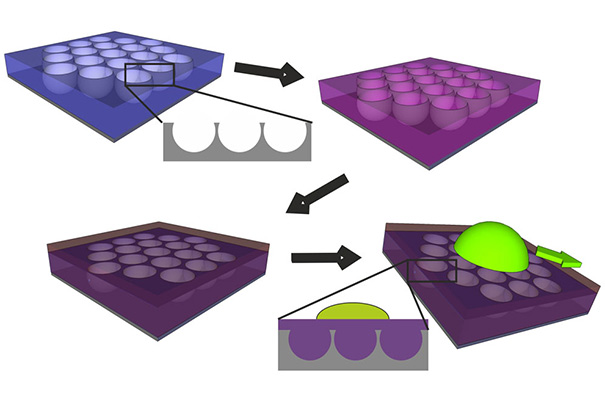
-
A patio space transformed
Envisioning a green space that is as inviting and social as it is operative and effective, students at Harvard’s Graduate School of Design worked last semester to transform a concrete patio space at Gund Hall into a modular system of vegetation and planters that could absorb and purify stormwater.
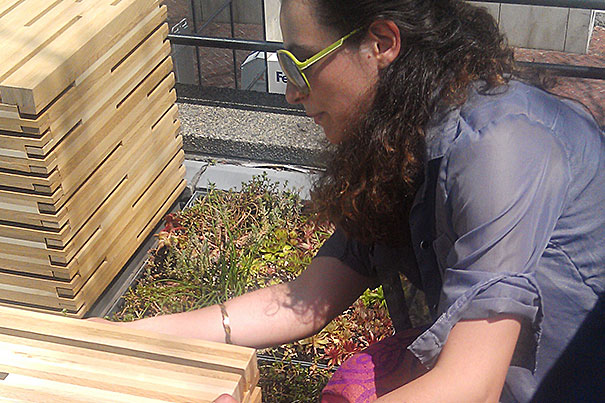
-
Perfecting digital imaging
Despite advances, the best software and video cameras cannot seem to get computer-generated images and digital film to look exactly the way our eyes expect them to. Harvard’s Hanspeter Pfister and Todd Zickler are working to narrow the gap between “virtual” and “real” by asking the question: How do we see what we see?

-
The next gold rush: Outer space?
New observations confirm that colliding neutron stars create short gamma-ray bursts, and such collisions produce rare heavy elements, including gold. Researchers at the Harvard-Smithsonian Center for Astrophysics believe the Earth’s gold likely came from colliding neutron stars.

-
Efficiency in the forest
Spurred by increasing levels of atmospheric carbon dioxide, forests over the past two decades have become dramatically more efficient in how they use water, a Harvard study has found.
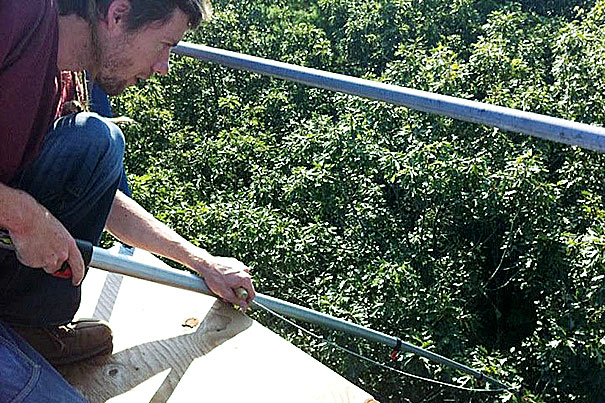
-
Designing a cleaner future
A slum on the outskirts of Accra, Ghana, received major media attention when the world realized it’s where computers go to die. That was when Harvard undergraduate Rachel Field ’12 devoted her senior thesis project to addressing the problem. Her solution was an award-winner.
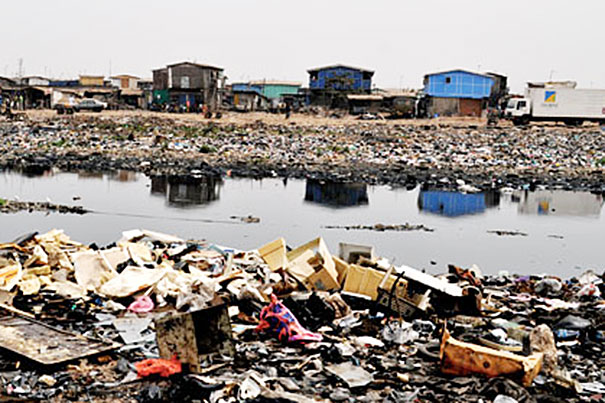
-
Avoiding the digital ‘flock’
In his new book, “Rewire,” former Berkman Fellow Ethan Zuckerman challenges the digital world to connect with others, using tools to overcome people’s “flocking” instincts.

-
Right down the middle, explained
The ability to throw an object with great speed and accuracy is a uniquely human adaptation, one that Harvard researchers say played a key role in our evolution.
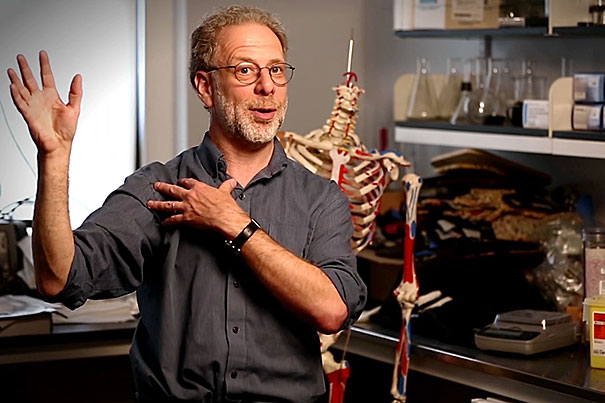
-
Map to renewable energy?
Researchers hoping to make the next breakthrough in renewable energy now have plenty of new avenues to explore — Harvard researchers this week released a database of more than 2 million molecules that might be useful in the construction of organic solar cells for the production of renewable energy.
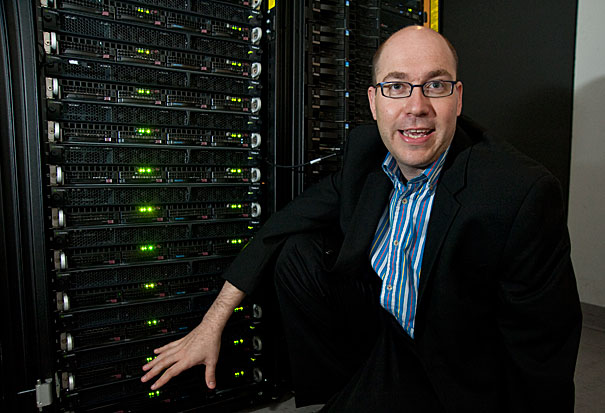
-
Taking stock of technology
At the recent Harvard IT Summit, Anne Margulies, vice president and University chief information officer, mentioned how Harvard had been at the forefront of information technology since its inception, even to the point of naming the burgeoning field.

-
Science, front and center
A Harvard/MIT conference brought together young scientists and experts to explore best practices in communicating science to wider audiences.
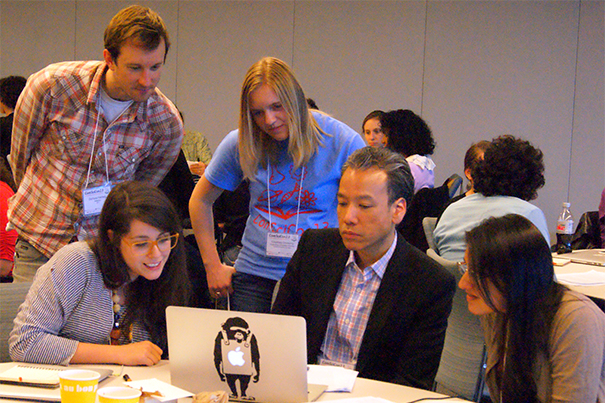
-
Looking at chimp’s future, seeing man’s
The fate of chimpanzees in Africa is largely in the hands of increasing numbers of poor, rural dwellers crowding the primates’ forest homes. That is why an educational project begun near Uganda’s Kibale National Forest focuses on 14 schools teaching almost 10,000 children, researchers say.
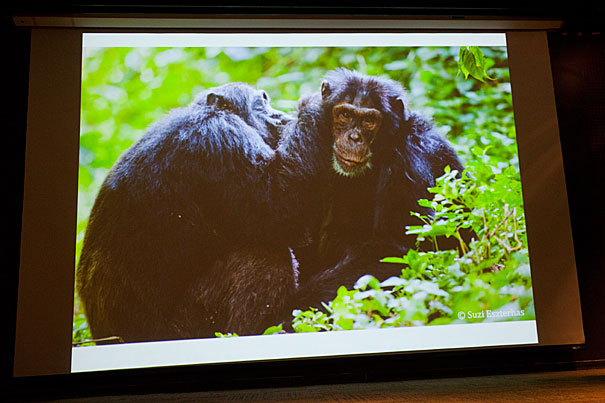
-
Reputation as a lever
Using enrollment in a California blackout prevention program as an experimental test bed, a team of researchers showed that although financial incentives boosted participation slightly, making participation in the program observable produced a threefold increase in sign-ups.
-
Songs from the stars
Gerhard Sonnert, a research associate at the Harvard-Smithsonian Center for Astrophysics, has created a new website that allows listeners to literally hear the music of the stars.

-
Urgent prep work
Humanitarian relief workers and climate scientists gathered in Cambridge this week to discuss the connection between climate change and humanitarian disasters and what relief workers can learn from science.
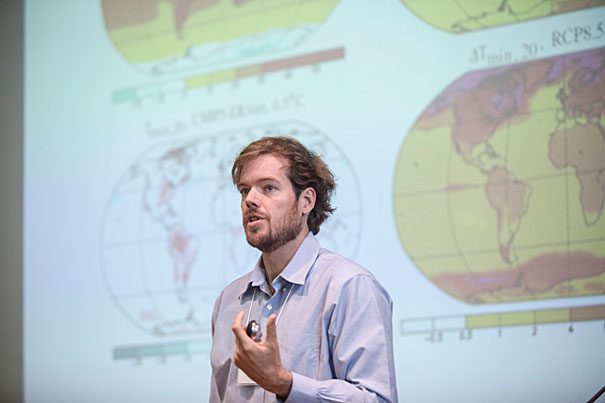
-
The trouble with Kepler
A malfunction aboard NASA’s Kepler Space Telescope has jeopardized what has been one of the agency’s highest-profile missions, one that has revealed a galaxy rich with planets. The Gazette talked to Astronomy Professor Dimitar Sasselov, one of the mission’s principal investigators, about the implications.
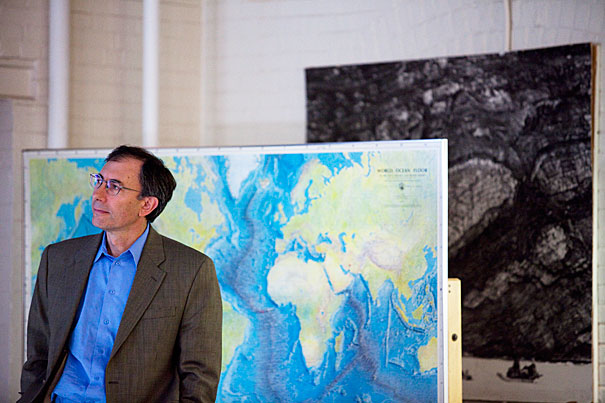
-
The nearness of you
In research described earlier this year in the Personality and Social Psychology Bulletin, Elinor Amit, a College Fellow in psychology, along with two collaborators, Cheryl Wakslak and Yaacov Trope, showed that people increasingly prefer to communicate verbally (versus visually) with people who are distant (versus close) — socially, geographically, or temporally.
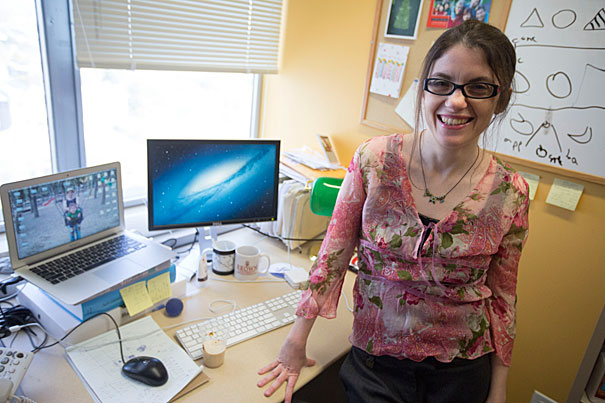
-
How to protect cyclists
Four Harvard School of Public Health students presented recommendations to the Boston City Council on how to make Boston a safer city for cyclists.
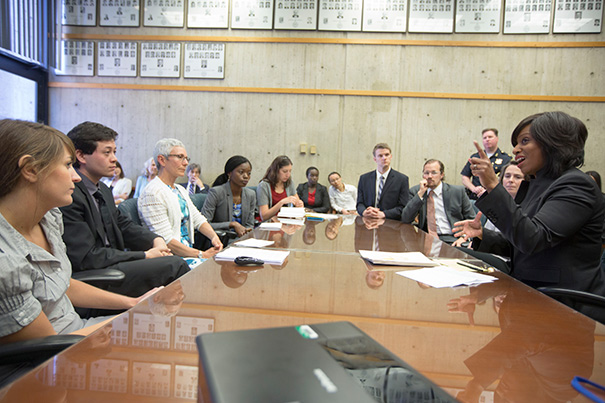
-
Building with an eye on the sky
Real estate developer Jonathan Rose highlighted recent progress in incorporating green features into affordable housing projects, saying America’s cities provide an energetic counterpoint to the stagnation in Washington, D.C.
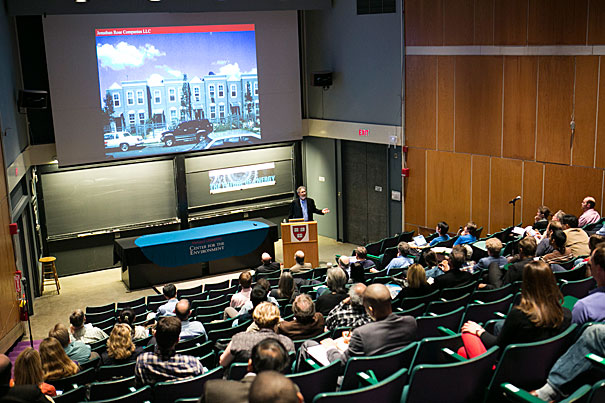
-
Projectile learning
Students in Matthew Liebmann’s “Encountering the Conquistadors” class recently got a feel for prehistoric life, trying their hands at an ancient weapon called the atlatl.
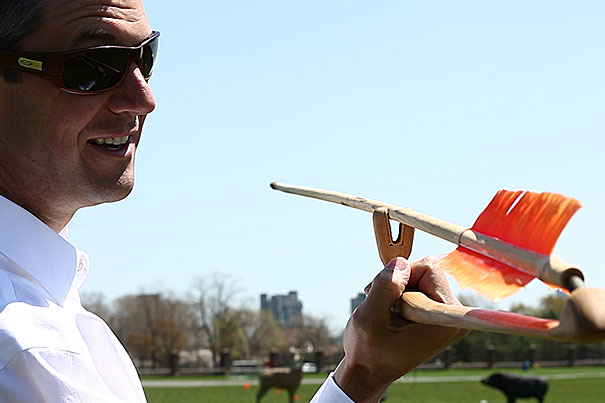
-
Robotic insects make first controlled flight
The demonstration of the first controlled flight of an insect-sized robot is the culmination of more than a decade’s work, led by researchers at the Harvard School of Engineering and Applied Sciences and the Wyss Institute for Biologically Inspired Engineering at Harvard.
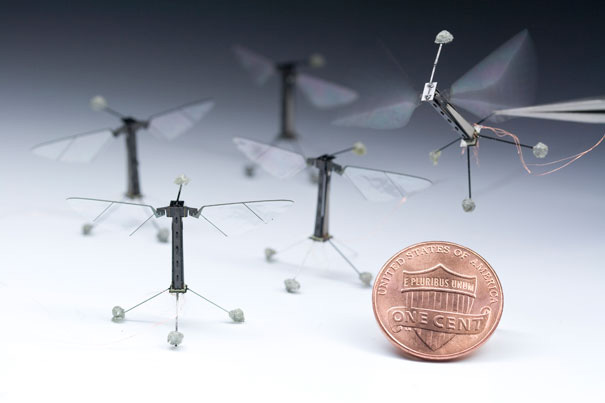
-
Understanding student weaknesses
As part of an unusual study that surveyed 181 middle school physical science teachers and nearly 10,000 students, researchers found that the most successful teachers were those who knew what students would get wrong on standardized tests.
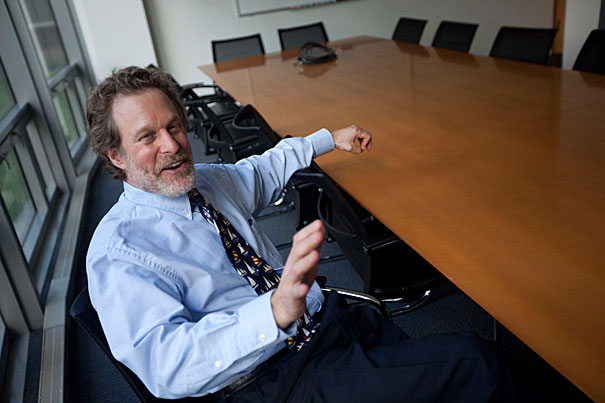
-
Seeking fairness in ads
Latanya Sweeney, Harvard professor of government and technology in residence, wants to add a new factor to the weighting Google uses when delivering online ads, one that measures bias. In a new paper, she describes how such a calculation could be built into the ad-delivery algorithm Google uses.
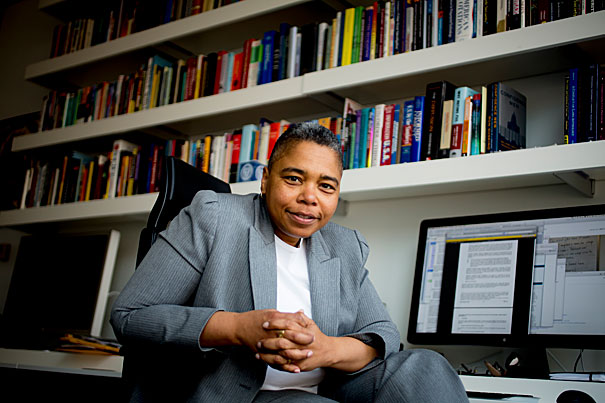
-
Science in service
Teams of students from “Engineering Sciences 20: How to Create Things and Have Them Matter” in the Harvard School of Engineering and Applied Sciences are working to create unusual products that are designed to change the world.
-
The problem with predictions
People would like to predict the future, says author and mathematician David Orrell, but it remains quite a difficult thing to do, even with lots of data at hand.
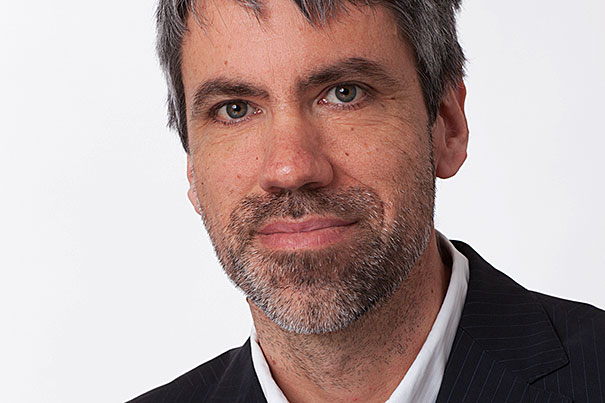
-
Robot hands gain a gentler touch
Researchers at the Harvard School of Engineering and Applied Sciences have developed an inexpensive tactile sensor for robotic hands that is sensitive enough to turn a brute machine into a dexterous manipulator.



